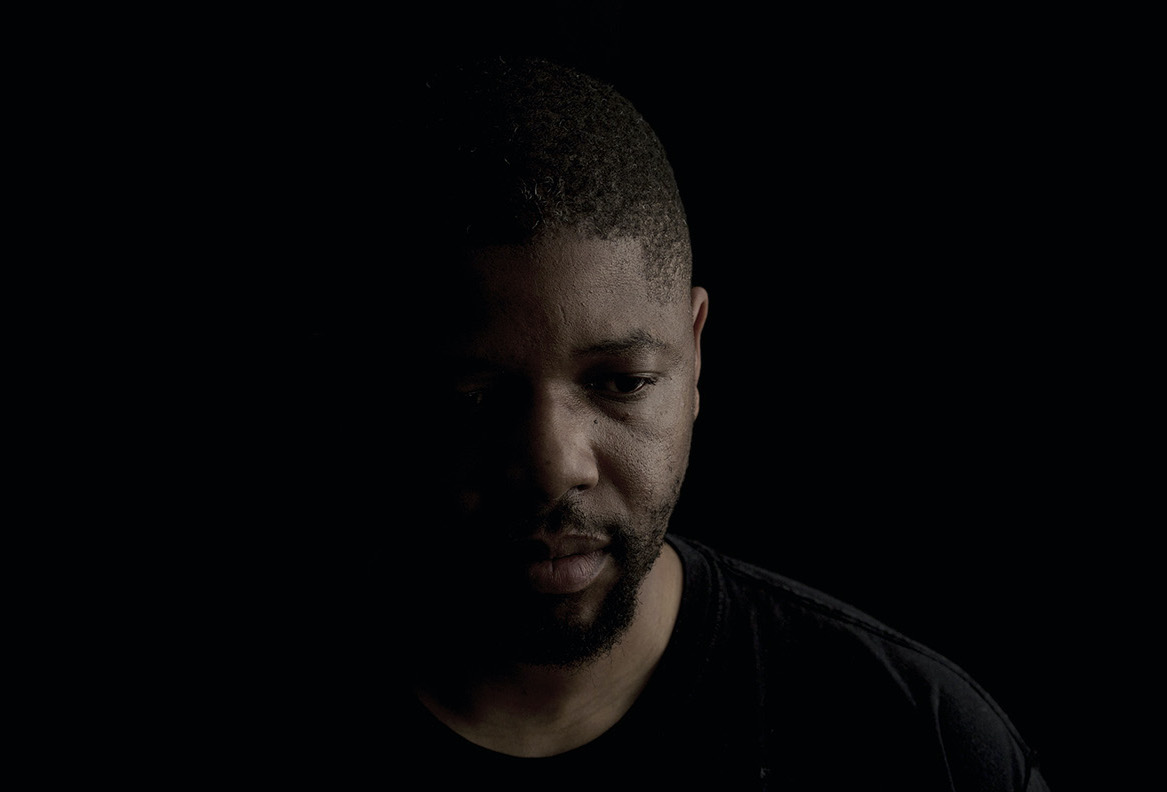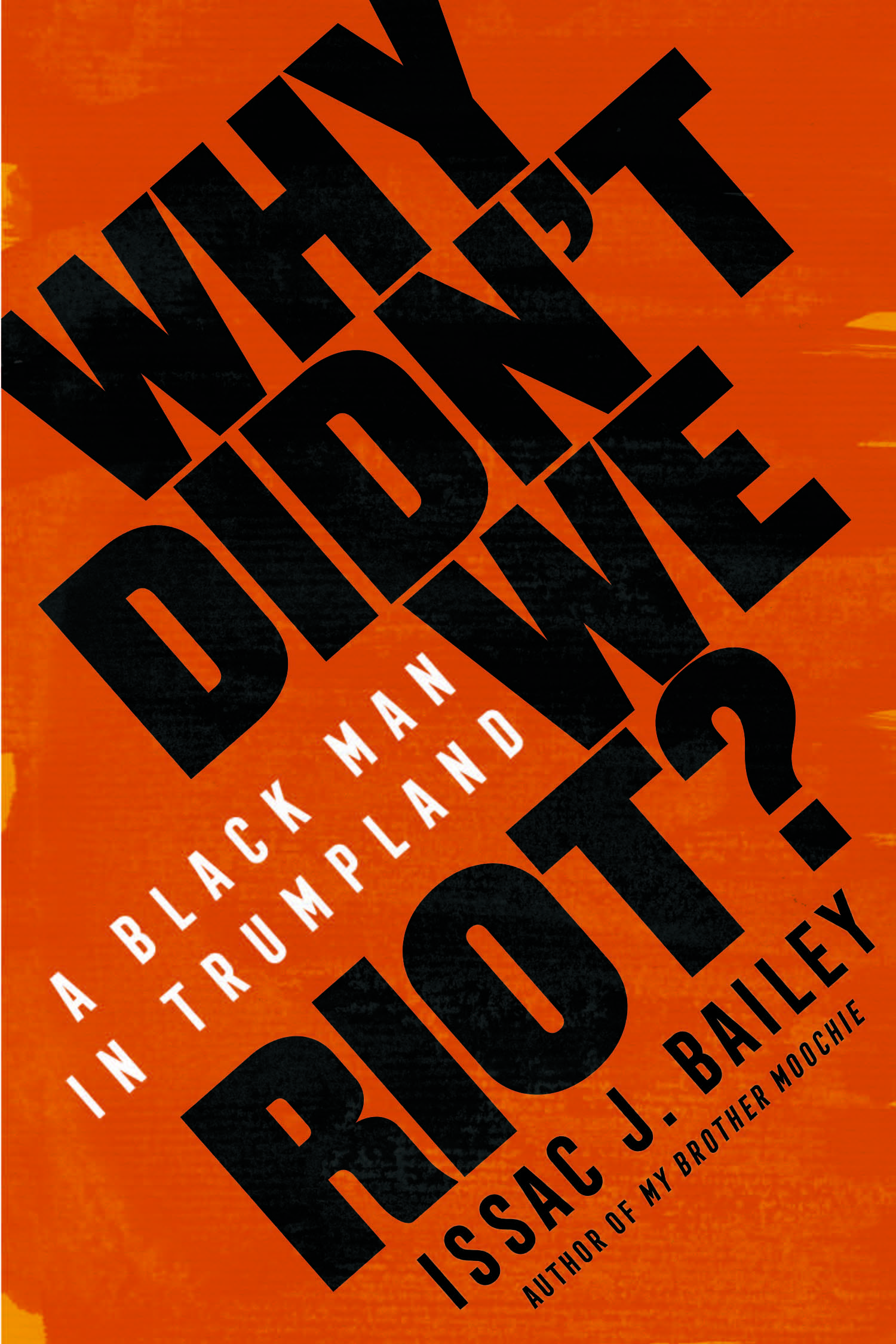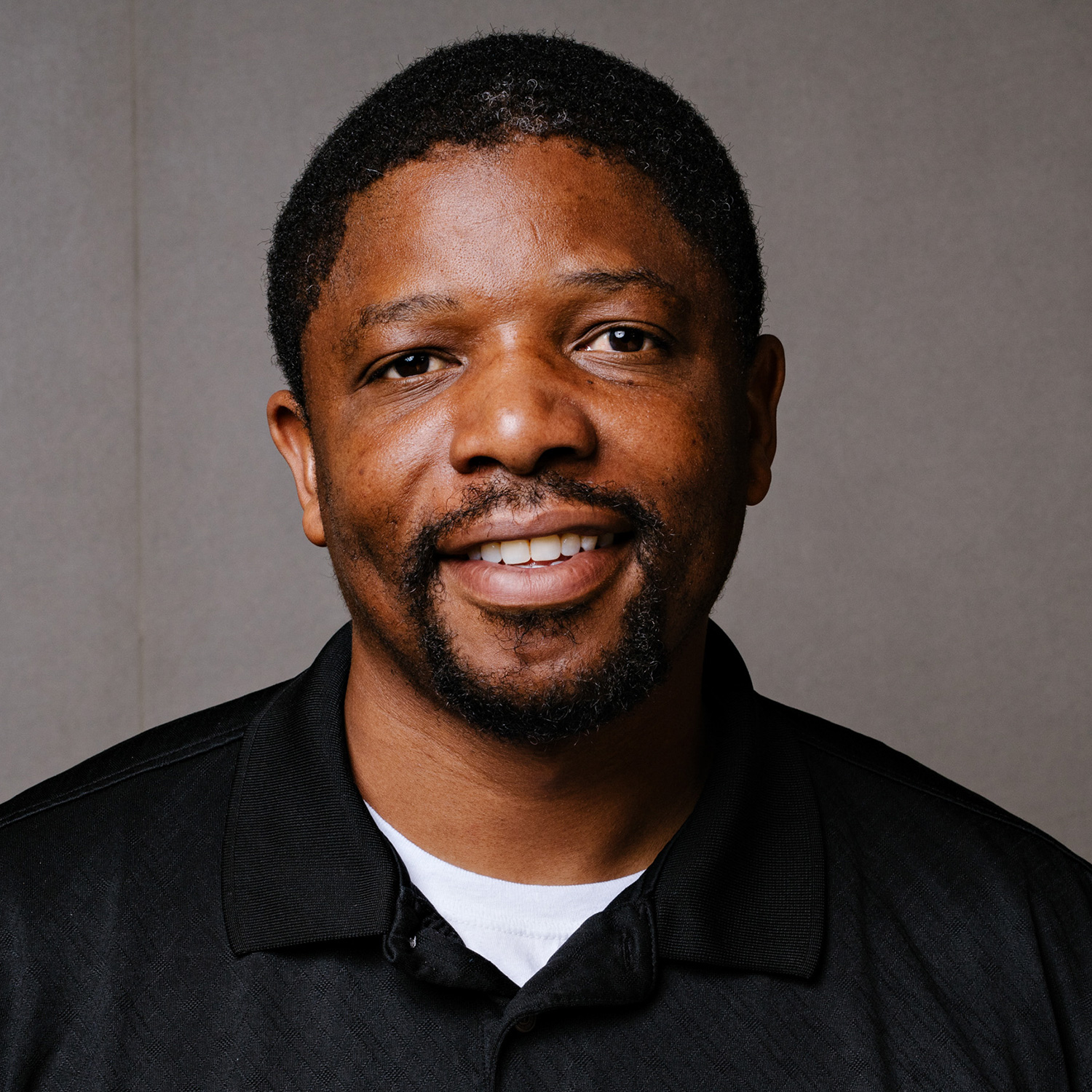
2014 Nieman Fellow Issac Bailey
In “Why Didn’t We Riot? A Black Man in Trumpland,” published October 6 by Other Press, Issac J. Bailey reflects on what it means to be a Black man in Trump’s America in a series of urgent, impassioned essays. In this excerpt, Bailey — a 2014 Nieman Fellow and regular contributor to Nieman Reports — examines incidents he faced, pre-Trump, as a Black journalist at a Southern newspaper:
I understand why introducing white readers to facts they didn’t want to be made aware of will discomfort them. That task is made more difficult when journalists are unwilling or unable to properly deal with racial tension within their orbits. Too many times, I didn’t handle it properly. Too many times, I gave in and was weak when I needed to be steadfast.

Why Didn't We Riot? A Black Man in Trumpland" by Issac J. Bailey
I once wrote about a prominent white man in Myrtle Beach who lost a real estate case. He marched into my editor’s office saying I was biased because the couple he lost to was black like me. Never mind that I had never met the couple and didn’t know they were black. For all I knew, they were blue, which happened to be their last name. I wrote the story based on interviews with their white attorney and court documents. None of that mattered. My editors allowed him to write a long letter to the editor taking me to task — without naming a single factual error I had made — after they printed a lengthy “correction” to my article, which consisted of his side of the story, even though he had turned down my request for comment before the story was published. I stewed about the indignity but swallowed hard, as black people in Trumpland are taught to. I neither let on it bothered me nor spoke about it with my colleagues.
In another instance, as I was returning to my desk from lunch, my white publisher dressed me down in the newsroom for having written a column she didn’t like.
A group of irate conservative, white readers had grown more boisterous and had been in her ear about me. They had been hounding her for weeks. They wanted me gone. It wasn’t the first time a group of white readers wanted me disappeared from the newspaper, or at least neutered, and wouldn’t be the last. But she was the first publisher I had who had decided to give in to the pressure. She called me and my editor to her office a couple of times to tell me to stop writing about race and politics the way I had been doing long before she was hired. The first meeting was a gentle demand; the second time she dropped the gentle. I left each one thinking I had to write the way I knew I should, that doing so could mean the end of my career at the Sun News, that doing anything else would be journalistically unethical. For the first time since I was a newbie journalist who believed my severe stutter would lead to my professional demise, I walked into the office every day thinking it might be my last and left every evening warning my wife that tomorrow might be the day.
Once again, I swallowed hard and did not let my colleagues in the newsroom know what was happening. I briefly let it slip during a conversation with a colleague in our DC bureau. He wanted to highlight it in a journalistic newsletter. I told him not to. He asked if he could do it anonymously. I still told him no. I still don’t fully understand why. As journalists, we are to shine light in dark places, even if we happen to be in one of them. In that instance, I didn’t. I failed. I think — think — a part of me wanted to protect her from charges of racism. She wasn’t racist, isn’t racist, but was giving in to readers trying to pressure a black man to either be less black or be out of a job. Some of those readers had begun sending me provocative, hateful email messages hoping I’d say something in response that could give my publisher cause to fire me. It should be noted that South Carolina is a so-called right to work state. Union membership is nearly nonexistent. Most of us don’t work under contract. I didn’t. There were no union protections to rely upon.
It’s odd, I know. I was enduring her wrath but trying to protect her image. It’s akin to what white journalists have been doing in the Trump era, protecting the image of those causing the most harm, perhaps out of a sense of guilt or obligation. Things went on that way seemingly forever, though probably only several months. As I was shielding my publisher from a public reckoning, I was publicly thanking the paper’s mostly white readership for accepting me. Almost none of them had called me nigger, many supported me, and the “African heritage” hate mail letters were few and far between, I wrote. I also thanked the white editors who stood up for me during my toughest moments. I’d be greeted warmly at Republican political events by people with whom I strongly disagreed. They loved that I was outwardly loving toward the region and appreciative of the United States. They could use me to counter the white-hot, righteous black anger that was Reverend H.H. Singleton, the outspoken president of the local NAACP, with whom I sometimes clashed.
I was doing the dutiful thing many successful black Americans do, repeatedly paying public homage to the white people who had “given me an opportunity” and “allowed” me to use my skills. When white conservative readers created a loud chorus to punish me for being too black, I stoically, silently endured it. That was required of black people, I was taught while growing up in Trump-land. Though I had no say over what the ocean decided, I was to make no waves.
My publisher didn’t stop until my reporting led to high-profile national writing awards, as well as a top journalistic prize from corporate executives, a real feat for a newspaper our size. Almost overnight, it was as though none of it had happened, she had backed off so suddenly and completely. She invited me to a Christmas party at her house. She told me to visit her in the new city where she eventually moved and said it would be great having me write for the newspaper she took over after leaving Myrtle Beach. (That didn’t materialize. I took other writing and teaching jobs; they prioritized political coverage needs.)
There were many other slights I swallowed. After I began as the first black lead columnist for the only daily newspaper in Myrtle Beach, taking over for a beloved white columnist whose lighthearted take on politics had endeared him to many, I had to fight off attempts by my well-meaning white editors to “tone it down” a bit, the same editors who would later defend me against the publisher. They didn’t want me to be seen as the “black columnist.” They simply could not hear me when I repeatedly said there was nothing I could do about that. It was hard to get them to hear even when a few readers called in to say I was throwing a gang sign in the photo that accompanied my column, when all I had done was rest my chin between my thumb and index finger while staring into the camera. Other times, I had white colleagues — including those I frequently spoke in favor of during tense moments in the newsroom — tell me my opinions about race were suspect, and they said this in ways they would never use with white columnists who also had strong opinions. I was being too black; they were determined to guide me back to respectability.
In those environments, I knew if I wrote about race, many of my white colleagues would consider it unserious journalism. I also knew if I didn’t, the subject would hardly ever get a sober examination in our pages other than after racially explosive events. At least that’s the way it felt. For a long time, I spoke more about the years I spent being the region’s primary real estate journalist, my reporting on the manufacturing industry, and my time as business editor than my writing and reporting on race. It was my subtle way of proving I was a legitimate journalist doing legitimate work despite my blackness.
At another paper, the white editor and publisher forbade me from comparing the Confederacy and its aftermath to the Holocaust. It would be unfair to white readers who revered the Confederate flag, I was told. All of this was happening as I was receiving “African heritage” letters and death and other kinds of threats I told almost no one about, and as I was struggling to balance the views of black people who had long been ignored and those of white readers who wanted to talk about race only if it was to tell black people that racial disparities were our own damn fault. I was also writing about my experiences of being a black man in the South who had never been racially profiled by police, which angered some of my black friends. I turned over one column to a Tea Party member so he could explain that group’s point of view. I revealed my friendship with a white man who had decorated his house with the Confederate flag and Gone with the Wind memorabilia. I took to task civil rights icon Harry Belafonte when he referred to Colin Powell as essentially a house nigger, and I spoke of my bipartisan voting record. I even defended a local college professor who used the racial trope “go back to Africa” during an argument on campus. None of that convinced many white conservative readers, or a number of my white colleagues, that I was being fair to white people. All they wanted was for me to point out the flaws of black people or say nothing about race at all. Going beyond the parameters they set meant I was a black radical.
Many years after I left the paper, I asked some of my former colleagues what they thought of those incidents, particularly those concerning race in the newsroom. To a person, they hardly remembered any of them. Those incidents, which nearly convinced me to resign several times or quit the news industry altogether, hadn’t registered with them at all. Not only that, my former publisher was offended because I asked the question at all, even though I was careful to couch my question with a sincere “I know it wasn’t about racism for you, but . . .” She stopped returning my messages. I haven’t spoken with her since.


